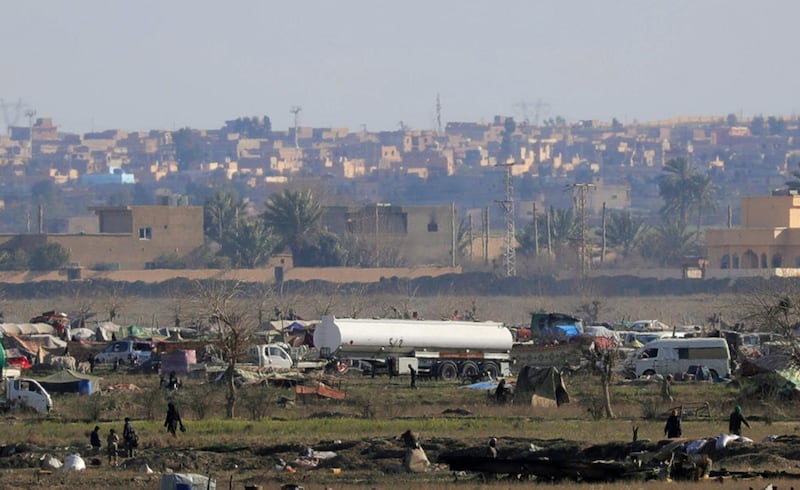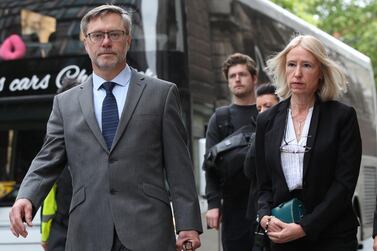Britain’s legal adviser at the United Nations has doubled UK funding for bringing violent ISIS members to justice to £2 million, or Dh9.1m.
The UN investigative team looking into crimes committed by ISIS was created in 2017 to provide closure and justice for relatives of those killed by the terrorist group and survivors of its atrocities.
Susan Dickson, the UK legal adviser at the UN, said the team had made remarkable progress in establishing the agency, known as Unitad, in Iraq and opening investigations.
“Since its inception, survivors and victims have been at the heart of the team’s efforts,” Ms Dickson said.
“We commend the team’s approach in emphasising that there is no hierarchy of victims and the recognition that all Iraqis suffered at the hands of Daesh.
“Their work will be important in supporting the government of Iraq and its efforts towards national reconciliation.”
The agency’s main tasks are to investigate attacks by ISIS against the Yazidi community in Sinjar in August 2014, in Mosul between 2014 and 2016, and the mass murders of unarmed Iraqi cadets from Tikrit Air Academy in June 2014.
Britain has advocated for adding more Iraqis to the team, which employs 79 staff in Iraq including criminal investigators, analysts, witness protection experts and forensic scientists. Women make up 55 per cent of the staff.
On Monday, Karim Ahmad Khan, the head of the agency, told the UN Security Council that he expected his investigators to provide concrete support for at least one case before Iraqi courts.
Mr Khan’s team heard harrowing accounts of “mass killings, of entire families erased and of women and girls taken as slaves”, he said.
He said they gained access to more than 600,000 videos related to the ISIS crimes, and more than 15,000 pages of internal ISIS documents originally obtained from the conflict zone by journalists.
The UK has struggled to form a consistent policy on the return of ISIS members to Britain since the group was driven out of its last territory, in Baghouz, in March.
Teenage ISIS recruit Shamima Begum was stripped of her citizenship in February after she was discovered in Al Hol refugee camp, Syria.
The decision by UK Home Secretary Sajid Javid gave rise to a national debate on how to handle returning ISIS members.
About 400 British ISIS fighters are thought to remain in the Middle East, despite the group’s defeat.







